or keep pressing Tab key no navigate
U.S. Department of Transportation Announces $2.8 Million
in Funding for new Transportation Centers at Texas Southern University
(Houston) February 27, 2023 – Texas Southern University’s College of Science, Engineering and Technology earned three grants from the U.S. Department of Transportation totaling nearly $3 million for transportation infrastructure research.
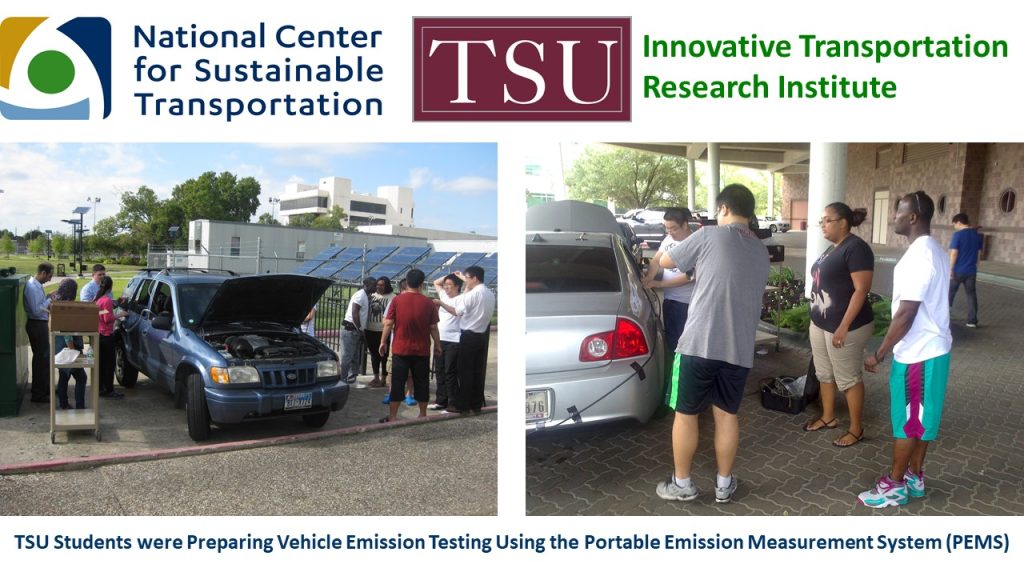
The grants are part of an $87 million national award from the U.S. Department of Transportation to 34 University Transportation Centers (UTC) to advance research and education programs that address critical transportation challenges facing our nation. The UTCs, which are located throughout the United States, conduct research that directly supports the priorities of the U.S. Department of Transportation (DOT). The participating universities and teams are a critical part of our national transportation strategy. TSU teams received three new UTC grant awards, including the new National UTC totaling $1.8 million with Dr. Lei Yu as Principal Investigator (PI) and Dr. Fengxiang Qiao as Co-PI, the new regional UTC worth $625 thousand with Dr. Gwendolyn Goodwin as PI, and Dr. Carol Abel Lewis and Dr. Yi Qi as Co-PIs, and the new tier-1 UTC for $375 thousand with Dr. Yi Qi as PI, totaling $2.8 million dollars to TSU. The Acting Dean Dr. Wei Wayne Li, College of Science, Engineering and Technology (COSET), said that “It is a great news for TSU, COSET, Transportation Department, and the faculty and students to have achieved the $2.8m research awards over the next five years. Congratulations, Dr. Yu and Dr. Qiao, Dr. Goodwin and Dr. Lewis, and Dr. Qi, for your leadership as the PIs and Co-PIs at TSU for the new National University Transportation Center, the new Regional University Transportation Center, and the new Tier 1 University Transportation Center, respectively. Thank you very much for your continued effort and time in your research which turned out to be a great success in terms of federal grant awards, publications, and student training, which significantly increases TSU’s visibility on the way toward R1 from current R2 status.”
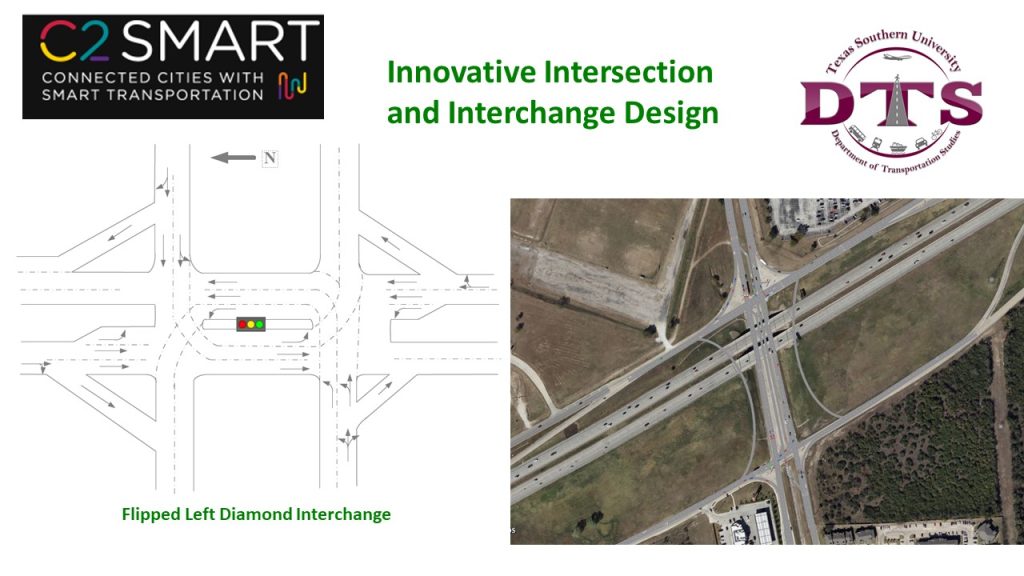
The National UTC research is for sustainable transportation, which will focus on preserving the environment. The TSU portion of the project will be administered through the Innovative Transportation Research Institute (ITRI). “TSU is honored to join the highly prestigious team of the National Center for Sustainable Transportation (NCST) and is truly excited for the great opportunity for our faculty, researcher, and students to make contributions to research and education that promote a sustainable and equitable transportation development” said by Dr. Yu, Professor of Transportation Studies and Director of the TSU Innovative Transportation Research Institute (ITRI), and Dr. Qiao, Professor of Transportation Studies and Co-director of ITRI.
A regional UTC called “Southern Plains Transportation Center” is for Improving the durability and extending the life of transportation infrastructure. TSU portion of the project is administered through the Center for Transportation Training and Research (CTTR). The research will focus on intensive freight movement through Region 6 and the interface between inland ports and neighborhoods. “We are 100% thrilled that with the recent USDOT transportation centers’ awards. TSU’s CTTR will begin its 35th year conducting important innovative research to address local and national transportation challenges. Our students will actively participate in these research projects, better preparing them to begin and advance their careers, which is invaluable!” said by Dr. Gwendolyn Goodwin, Assistant Professor and Director, and Dr. Carol Abel Lewis, Professor and Co-Director, of the CTTR.
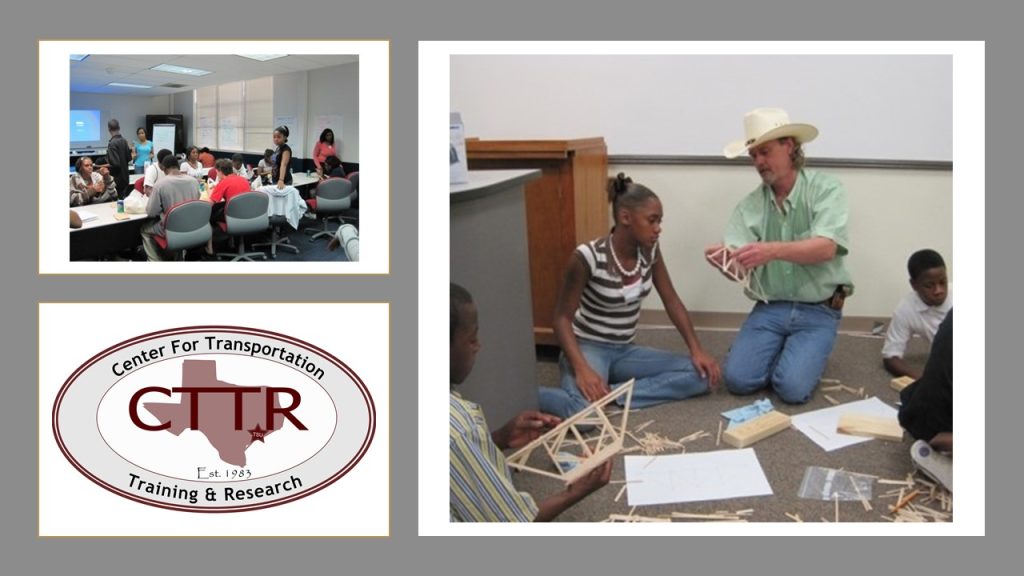
The Tier 1 UTC, called “Connected Communities for Smart Mobility Toward Accessible and Resilient Transportation for Equitably Reducing Congestion” is governed by the Department of Transportation Studies. “TSU team is thrilled to join the C2SMART center to conduct research on innovative intersection designs to reduce the congestion on our existing roadways!” said by Dr. Yi Qi, the Chairperson of the Department of Transportation Studies.
# # #
Texas Southern University (TSU) honors our designation as a special-purpose institution for urban programming and research. As such, TSU is a comprehensive university providing higher education access to the nation’s underserved communities with academic and research programs that address critical urban issues and prepares its diverse student population to become a force for positive change in a global society. A distinguished educational pioneer since 1927, the University has become one of the most diverse and respected institutions in Texas.
The Transportation Research Board (TRB), as part of the National Academies of Sciences, Engineering, and Medicine, provides leadership in transportation improvements and innovation through trusted, timely, impartial, and evidence-based information exchange, research, and advice regarding all modes of transportation. TRB held its 102 Annual Meeting January 7 through 12 in Washington, D.C. Texas Southern University faculty and students attained positions of prominence at the Annual Meeting.
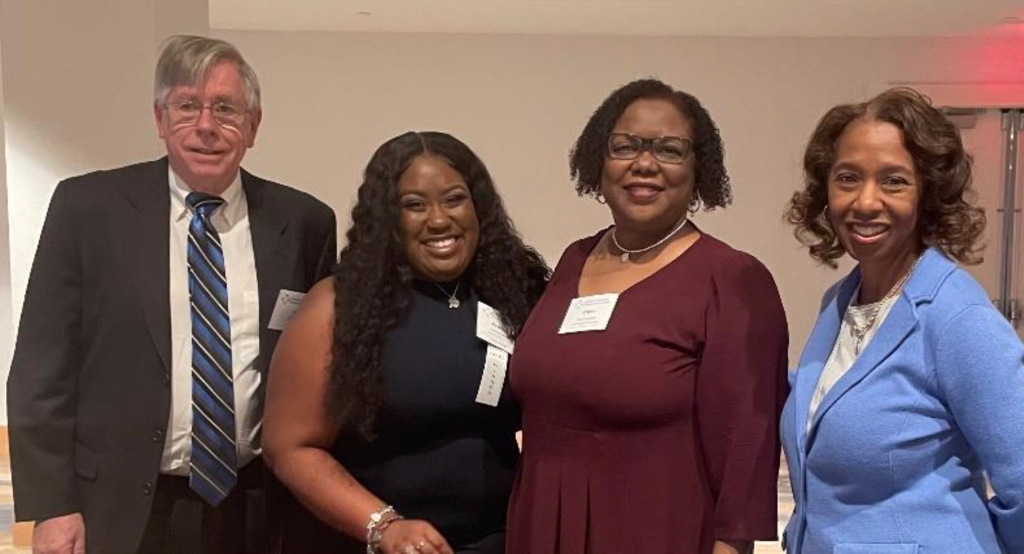
TRB Executive Committee
• Carol Abel Lewis, Ph.D., began service as Vice Chair of TRB’s Executive Committee
Outstanding Student Award
• Valencia Stewart received the Outstanding Student Award from the consortium of University of Texas, Louisiana State University, University of Pennsylvania and Texas Southern University (Cooperative Mobility for a Competitive Megaregion, CM2 ) for the Council of University Transportation Centers (CUTC)
• Valencia was also chosen to make remarks to all Minority Student Fellows at their Reception.
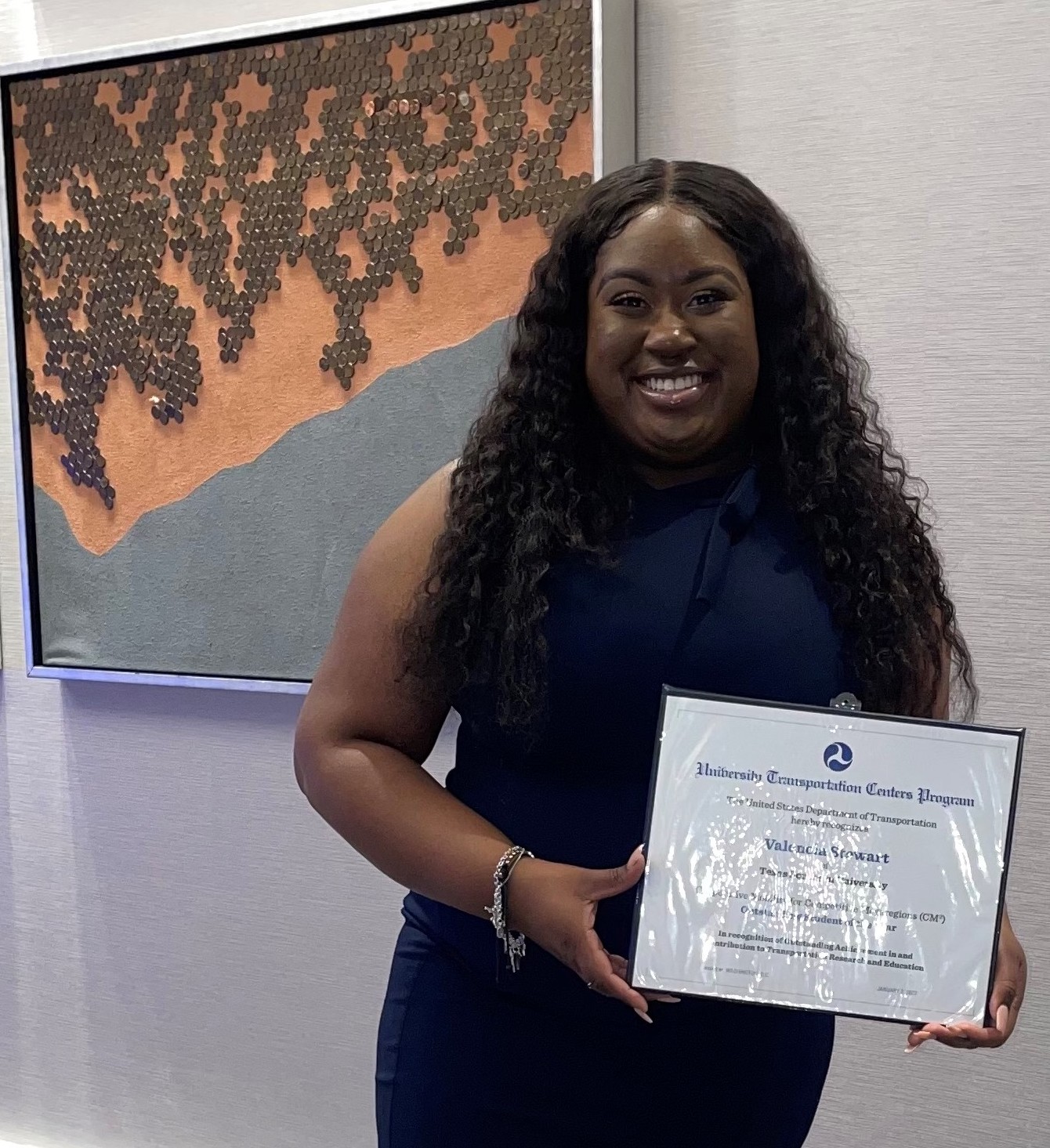
Dwight David Eisenhower Fellows with Research Posters
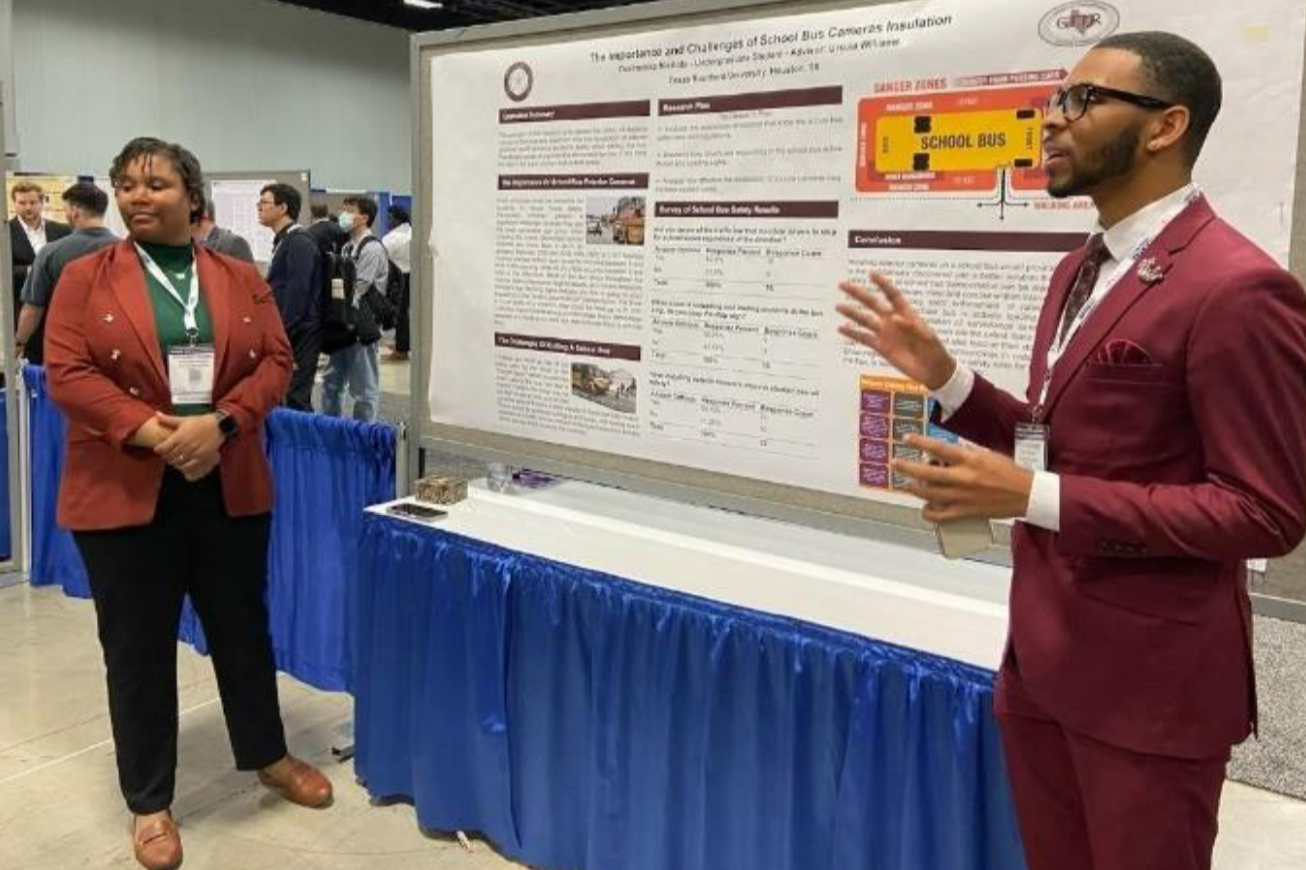
First Published by TSU Office of Marketing & Communications January 02, 2023
Aviation student credits United Airlines partnership with helping her earn commercial pilot license
Katherine Cabrera has wanted to get into aviation ever since she was a child. While the Houston native knew where she wanted to go, she wasn’t exposed to how to get there.
“I just kind of researched on my own,” Cabrera said. “I didn’t have any guidance. I just researched how to get into piloting. I took a discovery fight. They call it the flying bug. I got bit and it’s kind of an addiction now. I just want to keep getting better and better. I want to be good enough to fly a jet one day.”
Before coming to Texas Southern University, the senior aviation science management major got her private pilot license but says she got stuck because of funding.
“My money was going toward my college tuition so there wasn’t a lot of money left over to fly.”
Cabrera was planning to change majors because she didn’t have the money to cover the flight hours necessary to become a pilot. Then a scholarship came through thanks to a new partnership.
“I was offered a United Airlines scholarship from TSU in order to keep flying and it completely changed everything. I got my instrument rating and I just recently got my commercial pilot license. It’s worked out really well.”
The partnership between TSU and United Airlines includes scholarships as well as ongoing mentorship activities between United employees and students in the program.
“This is what I came to TSU for,” said Aviation Director Dr. Terence Fontaine. “I came here to see these kids reach their goals and to see the fruition of all the labor they put into their work. It’s meaningful.”
Dr. Fontaine says he constantly thinks about the futures of all of his aviation students.
“I think about where they’re going to be in the next 20 to 25 years and all the great things they’re going to accomplish as a result of being here at Texas Southern University and the partnerships we’ve been able to acquire between United Airlines and Southwest Airlines and what they mean,” he said.
Cabrera is one of five students who received the initial United Airlines scholarship.
Maritime Transportation Management and Security in partnership with the DHS Scientific Leadership Award Presents
Lecture
Mitigation Strategies for Potential Maritime Transport Cyber Security Issues
Professor Lucky Anetor, PhD, PE, CISSP
12:15 – 13:15 pm, Thursday, September 27, 2018, Technology Building, Room 261
Abstract
The advent of Information Technology or Cyber technology has brought a lot of benefits to every facets of our lives. The present digital revolution has also resulted in unprecedented prosperity and efficiency in our globalized economy and has become inextricably linked to all facets of our modern-day life. By all accounts, the innovations in cyber technology will continue to drive global progress well into the foreseeable future. Furthermore, it will continue to advance at astounding speeds. Ironically, the improvements that accompany the advent of cyber technology has also brought a growing number of challenges and risks that threaten the very foundation of our Nation’ssecurity and prosperity. In view of the foregoing, it is safe to say that cybersecurity is one of the most serious economic and national security challenges that is presently confronting us as a Nation. Our adversaries employ sophisticated tools and they possess substantial resources. These growing threats also pose formidable risks to our Nation’s Maritime Transportation System (MTS) and critical infrastructure, and by direct extension, our Nation’s security and economic stability. With approximately three hundred and sixty sea and river ports, which handle more than $1.5 trillion in annual cargo, our Nation is critically dependent on a safe, secure, and efficient MTS, which in-turn is highly dependent on a complex, globally-networked system of automated cyber technology infrastructure. In view of the foregoing, various strategies suitable for mitigating the vast array of cyber threats confronting our Maritime Transportation System industry will be presented.
Please download the flyer.
 Transportation professor Dr. Fengxiang Qiao was invited to present a seminar in the Kinder Institute for Urban Research at Rice University, entitled “Impacts of Transportation on Environment and Public Health Issues in Houston”. The seminar was held on September 18, 2017 in the Bioscience Research Collaborative (BRC) building at Rice University. Dr. Qiao introduced the recent research results, which include the testing, data analyses, and recommendations to decision makers on the importance of introducing environment and public health factors into the design stage of transportation systems.
Transportation professor Dr. Fengxiang Qiao was invited to present a seminar in the Kinder Institute for Urban Research at Rice University, entitled “Impacts of Transportation on Environment and Public Health Issues in Houston”. The seminar was held on September 18, 2017 in the Bioscience Research Collaborative (BRC) building at Rice University. Dr. Qiao introduced the recent research results, which include the testing, data analyses, and recommendations to decision makers on the importance of introducing environment and public health factors into the design stage of transportation systems.
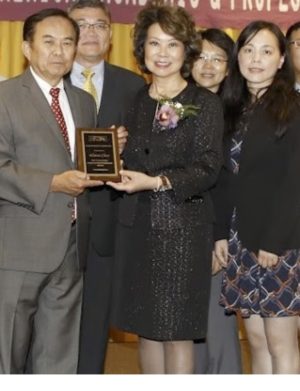 On August 19, 2017 in New York, TSU post-doctoral research fellow Dr. Qing Li (Right) represented Dr. Fengxiang Qiao, a TSU professor and the international president of ICTPA (International Chinese Transportation Professionals Association), to present US Secretary of Transportation Elaine Chao (middle) with the ICTPA “Exemplary Achievement in Transportation Award”. During May 19-21, 2017, the ICTPA 30th Annual Conference was held in Houston, and decided to award Ms. Chao, who could not make this conference due to a conflicted schedule. Another recipient of the same award is Mr. Jimmy Lim, the Mayor of the City of Diamond Bar in California, a past international president of ICTPA.
On August 19, 2017 in New York, TSU post-doctoral research fellow Dr. Qing Li (Right) represented Dr. Fengxiang Qiao, a TSU professor and the international president of ICTPA (International Chinese Transportation Professionals Association), to present US Secretary of Transportation Elaine Chao (middle) with the ICTPA “Exemplary Achievement in Transportation Award”. During May 19-21, 2017, the ICTPA 30th Annual Conference was held in Houston, and decided to award Ms. Chao, who could not make this conference due to a conflicted schedule. Another recipient of the same award is Mr. Jimmy Lim, the Mayor of the City of Diamond Bar in California, a past international president of ICTPA.
The advanced Portable Emission Measurement System (PEMS) – Axion in the Department of Transportation Studies, facilitates measurement of second-by-second real-world fuel consumption, Greenhouse Gas (GHG) and pollutant emissions from a variety of on-road vehicles and non-road equipments such as yard tractors, construction machinery, forklifts, locomotives, small aircraft, etc.
Students will be trained to use the PEMS equipment for collecting vehicle emissions in field studies. This is a very practical training with interdisciplinary skills required.
Students will receive interdisciplinary training, not only in transportation operations and management, but also in vehicle emissions testing and modeling, and environment technology and science. Due to the nature of the training, students will receive some basic knowledge regarding vehicle manufacturing. Students trained in this lab will be more competitive in finding jobs in even wider areas such as transportation engineering, environmental protection agencies and companies, and vehicle engineering.
The vehicle emission testing equipment, PEMS is a state-of-the-art device that can measure real time vehicle emissions and fuel consumption. Axion is composed of five components: the dual five-gas analyzer, the Particulate Matter (PM) monitor, the engine data obtaining subsystem, the Global Positioning System (GPS), and the on- board computer. The PEMS equipment is a very convenient and powerful tool for conducting advanced transportation and environmental research in evaluating the impacts of adopting environment-friendly traffic management strategies to reduce poor air quality and energy consumption. This equipment is a great asset for TSU and will support efforts to win more external funding.
Transportation professionals have used traffic simulation as an important tool for testing different traffic design alternatives in a realistic and highly detailed manner before field implementation. Simulations are widely used in the industrial and academic fields. With the state- of-the-art simulation software available in this traffic simulation lab, students will acquire important skills related to the use of software, which could significantly increase their employment potential in the transportation related public and private sectors.
This laboratory allows TSU researchers to conduct advanced transportation researches including 1) development, evaluation, and fine-tuning of signal priority logic, 2) evaluation and optimization of traffic operations in a combined network of coordinated and actuated traffic signals, 3) easy comparison of design alternatives at intersections, roundabouts, and grade separated interchanges, 4) modeling and simulating flows of pedestrians, etc. The enhanced research capabilities for TSU researchers will be an advantage when applying for external funding.
The special computer lab in the Department of Transportation Studies is equipped with 26 computers installed with a variety of transportation software, including transportation planning software (CUBE, TRANSCAD, etc.), traffic statistical analysis software (Microsoft Excel, Microsoft Access, SPSS, SAS, etc.), and Geographic Information System (GIS) software (ArcGIS, etc.). Students will learn the use of these softwares through a series of classes, including TMGT 815, TMGT 882, TMGT 850, TMGT 830, TMGT 811, TMGT 823 and TMGT 812. Regular trainings or workshops are also held in this lab by faculty or invited experts.
Students will gain experience and skills in the following areas: 1) traffic demand forecasting. With the use of transportation planning software, e.g. CUBE, students can estimate the future travel demand and the impacts of alternative transportation policies and improvements, 2) transportation system design and data analysis. With the use of Geographic Information System (GIS) software, e.g. ArcGIS and data analysis software, e.g. SPSS, students can spatially analyze the performance of different transposition designs and develop mathematical models to predict traffic conditions. Through these experiences, students will gain marketable skills to facilitate placement in both academic and industrial fields after their graduation.
Most federal or state funded transportation projects include tasks that require data analysis, traffic demand forecasting, or ArcGIS based system design and analysis. By using the state-of- the-art softwares installed in this lab, TSU researchers could conduct research in the fields of travel demand forecasting, air quality analysis, public transit systems, transportation design and analysis, Intelligent Transportation Systems (ITS), and transportation planning and management.
This lab significantly increases our research capabilities and improves the funding opportunities for TSU.
The Mini-TranStar lab in the Department of Transportation Studies was established in 2006 according to an agreement between TSU and Texas Department of Transportation, which allows TSU to access all the real time Closed Circuit Television (CCTV) traffic videos and speed data that are currently available in Houston Traffic Management Center, TranStar.
This lab is equipped with an exclusive internet connection between the Houston TranStar and the TSU lab. In the lab, there are five large LCD monitors and a couple of computers for displaying, selecting, recording, and analyzing traffic video images. The main function of this lab is to provide a surveillance of real-time traffic at any location on Houston freeways. The Mini- TranStar Lab is used for the courses TMGT 810, TMGT 812, and TMGT 862.
Traffic management centers deploy traffic management strategies to reduce congestion and coordinate state and local authorities during daily traffic or special events and emergencies. Accessibility of a mini traffic management center in the College and experience with the equipment in this lab provide the students with better credentials when they apply for jobs in the area of traffic management and operations.
The Mini-TranStar Lab combines the use of a research lab with a real-world Traffic Management Center. The lab is equipped with a TrafficVision Traffic Management Center Remote unit which can process and analyze real-time or recorded traffic videos, and collect traffic related data from many locations on Houston freeways to support the research being done in transportation operation, safety, and security areas. This lab can maximize the efficiency and productivity of the research being done in the Department of Transportation Studies.
The Maritime Transportation Lab is also the location of the annual Summer Maritime Academy, a program for high school juniors and seniors designed to introduce students to the maritime industry.
The Driving Simulation Lab has a state-of-the-art motion capable high-fidelity driving simulator. The visual display consists of 3 large screens with 135-degree wide-angle field of view. In addition, auditory feedback is provided through stereo components. A motion – platform provides initial cues in the form of pitch and longitudinal motion. A validated vehicle dynamics program governs the behavior of the vehicles in the simulation. All of these provide a true-to-life, scientifically validated driving experience.
Students will have comprehensive training on various aspects including the design and creation of testing scenarios and the design of posterior questionnaires. Students will be well equipped with skills such as experimental design, computer programming, software application, questionnaire administration, roadway design, and traffic signal timing. With this training, students will be equipped with practical experiences in traffic operations, transportation safety, intelligent transportation
systems and technology, and even transportation psychology. Students will have better and broader job opportunities in transportation management centers (e.g. Houston TranStar), metropolitan planning organizations (e.g. Houston-Galveston Area Council), and various private companies and government agencies. The driving simulator is a very powerful tool for conducting advanced transportation research including:
It has been, and will continue to be an essential research asset to enhance research productivity and funding opportunities for TSU.